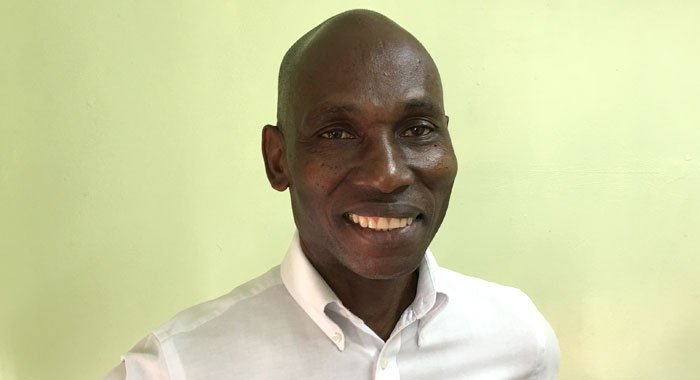Fri, Jan 03, 2020
In a major victory for human rights, Court of Appeal of Belize confirms that non-discrimination based on sexual orientation is protected by Belizean Constitution. On December 30, The Court of Appeal delivered a judgment denying the Belize Government’s appeal of a 2016 ruling decriminalising adult consensual same-sex relations.
The three-judge panel reaffirmed the decision of the Chief Justice in 2016 that Section 53 of the Belize Criminal Code – which criminalised ‘carnal intercourse against the order of nature’ and disproportionately discriminated against the lesbian, gay, bisexual and transgender (LGBT) community in Belize – contravened the constitutional rights to dignity, equality before the law, privacy, freedom of expression and non-discrimination on the grounds of sex, and was therefore void.
The Belizean law is like sections 146 and 148 which have been challenged in our courts by Shaun Mc Leash and Javin ‘Lucky’ Johnson, two homosexual men. That case is on track for trial sometime during the second half of 2020. Justice Samuel Lungole-Awich, writing for the Court of Appeal, ruled that the Constitutional prohibition on sex discrimination includes sexual orientation discrimination, and that this “gives the word sex in ss. 3 and 16 of the Constitution a purposive and generous meaning for protecting human rights. Accordingly, we hold that s. 53 of the Criminal Code is a law which discriminates on the basis of sex…and is void to that extent.”
The court further found that sexual expression is part of the Constitutional right to freedom of expression. In applauding the decision, Téa Braun, Director of the Human Dignity Trust (HDT), which made key submissions before the court, said the ‘decision from the Court of Appeal is part of a growing international trend recognising that discrimination on the grounds of sexual orientation is fundamentally rooted in gender stereotyping.
The court rightly applied international human rights law to its interpretation of the Constitution.’ ‘We hope the government will accept the Court’s decision and focus its full attention now on eradicating discrimination against all marginalised groups in Belize.’ In August 2016, Kenneth Benjamin, the Chief Justice of Belize, ruled that Section 53 of the Criminal Code was unconstitutional, and ordered that it no longer apply to consensual sexual acts between adults in private.
The Belizean Government which is led by Prime Minister Dean Barrow, accepted the Court’s overall ruling of decriminalisation. However, in an apparent bow to the pressure of church groups, the government caused its Attorney General to appeal against the findings on freedom of expression and non-discrimination. The Roman Catholic church, which argued for and was allowed interested party status in the litigation, filed an appeal against the entire 2016 ruling, but withdrew its appeal in March 2018, a few months before the Court of Appeal heard the case. Caleb Orozco, the Respondent in the case, opposed both grounds of the appeal on the basis that they were academic in nature and would have no effect in practice, and that they were in any event of no merit.
The Human Dignity Trust, the Commonwealth Lawyers Association and the International Commission of Jurists jointly intervened in support of Mr. Orozco before both the Supreme Court and the Court of Appeal and made extensive successful legal submissions on the correct interpretation of sex discrimination and freedom of expression. The October 2018 hearing at the Court of Appeal involved consideration of a range of decisions from the United Nations, the Caribbean Court of Justice, the Indian Supreme Court, and the appellate courts in the U.S., all of which support the view that the prohibition on sex discrimination encapsulates sexual orientation discrimination.
‘This ruling shows the strength of strategic approaches to communication and community mobilisation used across the Caribbean. We are proud that Belize is raising the bar of what is possible in advancing LGBT rights across the region’, Caleb Orosco said. Orosco is correct. People must overcome dogma, stigma and fear. We must challenge and interrogate everything. No one or no institution gets a free ride regardless status.
The Belizean Court of Appeal’s decision is critically important because it comes on the heals of similar decisions by the Trinidadian High Court dealing with the criminalization of same sex intercourse and a decision by the Caribbean Court Justice (CCJ) out of Guyana which was labelled the Cross-Dressing case.
To date, three courts have addressed the matter. All have persuasively ruled, citing a treasure trove of international human rights law in finding that the prohibitions in the criminal code of the respective countries violate constitutionally protected fundamental rights to privacy, liberty, freedom of expression and discrimination. Apart from St Vincent, there are challenges to these restrictive sexual provisions in Barbados, Dominica, Grenada and Jamaica. Here, a coalition of churches have received interested party status and is gearing up to support the government’s defense of section 146 and 148 of the nation’s criminal code. The code prohibits sexual relations between same sex couples. Violations of the code could land those convicted to up to 10 years in jail.
Both the Government and the coalition of churches are preparing to argue that the code prohibitions are reasonably construed to advance health and safety concerns of the nation.
There is also a moral dimension to the argument of those opposed to the challenge which alleges that the ban against consensual sex between persons of the same sex constitutes a violation of their fundamentally protected constitutional rights.
Based on the rulings in the decided cases in our region, the government and the churches have a long and difficult road to hoe. It is virtually impossible for them to convince a court that these prohibitions are reasonably justified and necessary for the proper functioning and protection of a democratic society.

